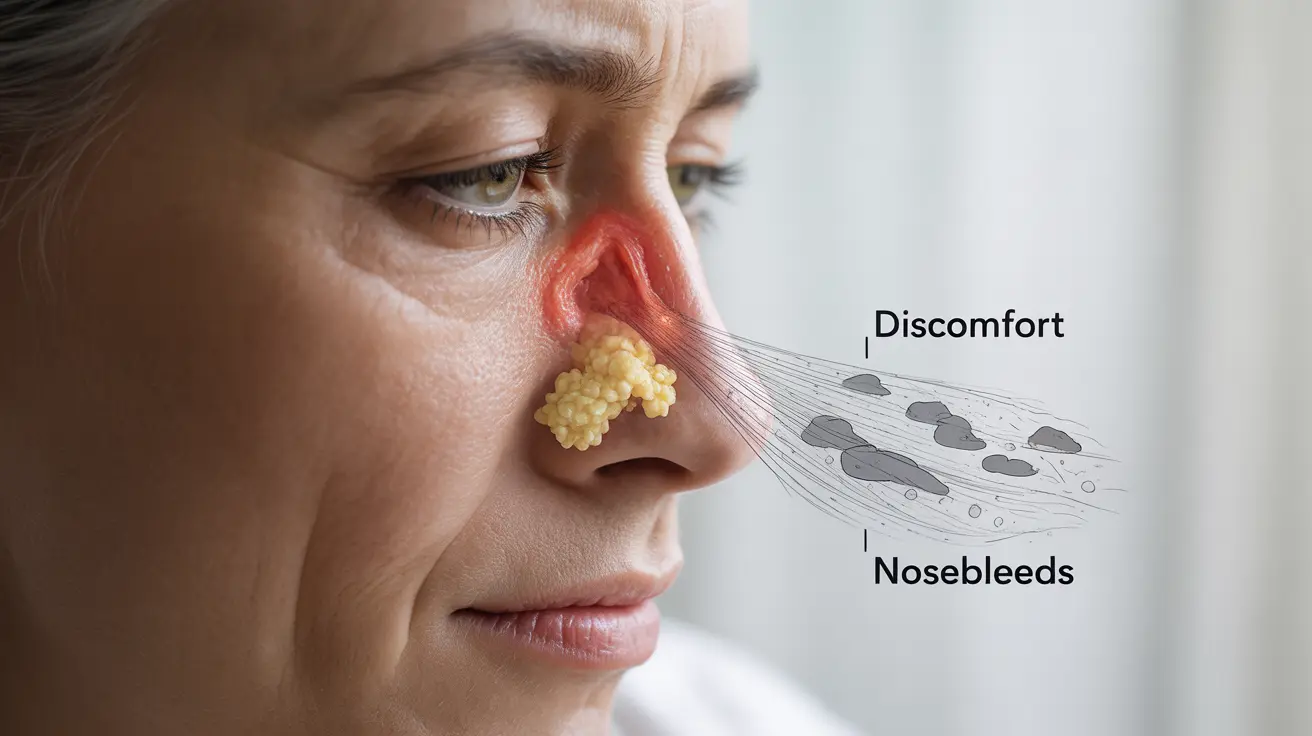Dry sinuses can be an uncomfortable and sometimes painful condition that affects many people, particularly during winter months or in arid climates. This common respiratory issue can lead to various uncomfortable symptoms and, if left untreated, may result in complications like frequent nosebleeds or increased susceptibility to infections.
Understanding the causes, symptoms, and treatment options for dry sinuses is essential for managing this condition effectively and maintaining optimal sinus health. Let's explore comprehensive strategies for relief and prevention.
Understanding Dry Sinuses and Their Impact
Dry sinuses occur when the mucous membranes in your nasal passages become dehydrated, leading to inflammation and discomfort. These membranes normally produce mucus to filter air, trap particles, and maintain proper nasal humidity. When they dry out, their protective function becomes compromised.
Common Symptoms of Dry Sinuses
Recognizing the signs of dry sinuses is crucial for early intervention and proper treatment. Common indicators include:
- Nasal irritation and burning sensation
- Frequent nosebleeds
- Crusty or dry nasal passages
- Sinus pressure and headaches
- Difficulty breathing through the nose
- Decreased sense of smell
Primary Causes and Risk Factors
Several factors can contribute to the development of dry sinuses:
Environmental Factors
- Low humidity levels indoors and outdoors
- Heated indoor air during winter
- Air conditioning
- Living in arid climates
Medical and Lifestyle Factors
- Antihistamines and decongestants
- Nasal sprays (when overused)
- Smoking or exposure to secondhand smoke
- Certain medications that cause dryness
- Medical conditions affecting mucus production
Effective Home Treatment Strategies
Several home remedies can provide relief from dry sinuses:
Moisture-Adding Methods
- Using a humidifier in living spaces
- Saline nasal sprays or rinses
- Steam inhalation
- Applying petroleum jelly to nasal passages
Lifestyle Modifications
- Staying well-hydrated
- Avoiding irritants like smoke
- Using a warm compress on the face
- Practicing gentle nasal breathing exercises
Medical Interventions and Professional Care
While many cases of dry sinuses can be managed at home, some situations require medical attention. Professional treatment options may include:
- Prescription nasal sprays
- Medications to address underlying conditions
- Treatment for allergies if relevant
- Specialized humidification devices
Prevention Strategies
Taking proactive steps to prevent dry sinuses can significantly reduce discomfort:
- Maintaining optimal indoor humidity (30-50%)
- Regular cleaning of humidifiers
- Avoiding overuse of heating and air conditioning
- Using air filters to remove irritants
- Staying hydrated throughout the day
Frequently Asked Questions
What are the most common symptoms of dry sinuses and how can I recognize them?
The most common symptoms include nasal irritation, burning sensations, frequent nosebleeds, crusty nasal passages, sinus pressure, and reduced sense of smell. You may also experience discomfort when breathing through your nose and recurring headaches.
What causes dry sinuses and how do allergies, medications, and dry air contribute?
Dry sinuses are primarily caused by environmental factors like low humidity, heated indoor air, and air conditioning. Medications such as antihistamines and decongestants can contribute by reducing mucus production. Allergies can worsen symptoms by triggering inflammation in the nasal passages.
How can I treat dry sinuses at home to relieve discomfort and prevent nosebleeds?
Effective home treatments include using a humidifier, applying saline nasal sprays, practicing steam inhalation, and ensuring proper hydration. Petroleum jelly can be applied to the nasal passages to prevent nosebleeds, and warm compresses can help relieve sinus pressure.
When should I see a doctor for dry sinuses and what medical treatments are available?
Consult a doctor if symptoms persist despite home treatment, if you experience frequent severe nosebleeds, or if you develop signs of infection. Medical treatments may include prescription nasal sprays, medications for underlying conditions, or specialized treatments for chronic cases.
How can lifestyle changes and home humidifiers help prevent dry sinuses during winter?
Maintain indoor humidity between 30-50% using a clean humidifier, stay well-hydrated, and avoid excessive exposure to heated air. Regular cleaning of humidifiers prevents bacterial growth, and using air filters can remove irritants that worsen symptoms. Consider using a humidifier in your bedroom while sleeping for overnight relief.




